
Healthy living is more important now than ever. Not only are we fast approaching winter, but we’re stuck inside most the time (rightfully) trying to flatten the curve.
So, aside from those essential home workouts, it’s also essential to eat well to ensure you stay as healthy as possible. But with so much information out there about what you should and shouldn’t be eating to have a healthy living diet, it’s hard to know where to start.
Forget fad diets and what’s trending. We’ve rounded up 15 healthy foods everyone should be eating to live a balanced and healthy life. From fruit and vegetables to grains and legumes, make sure you’re eating these delicious and nutritional foods and quickly notice the benefits of a healthy lifestyle.
1. Kale
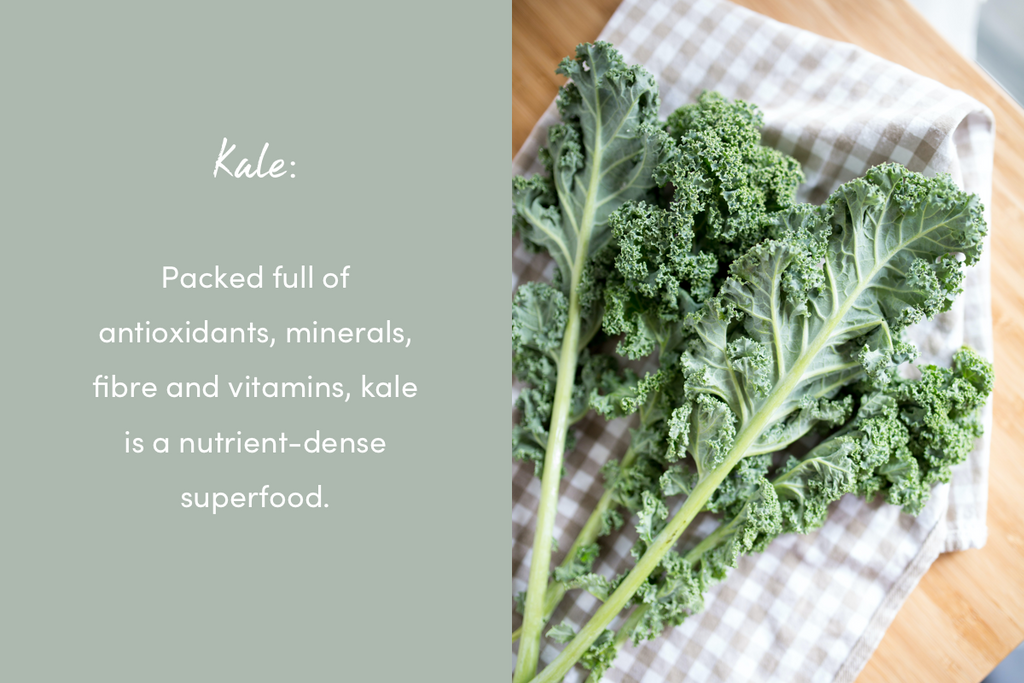
All leafy greens are great for you, but kale really reigns supreme. Packed full of antioxidants, minerals, fibre and vitamins, kale is a nutrient-dense superfood that is worth eating on a daily basis. Kale is also high in bioactive compounds that have proven to fight cancer in studies.
Kale is delicious cooked or raw, so don’t be afraid to experiment with it beyond salads. From pizza to Panzanella, kale makes a tasty addition to many dishes. Check out some recipe ideas for inspiration.
2. Blueberries
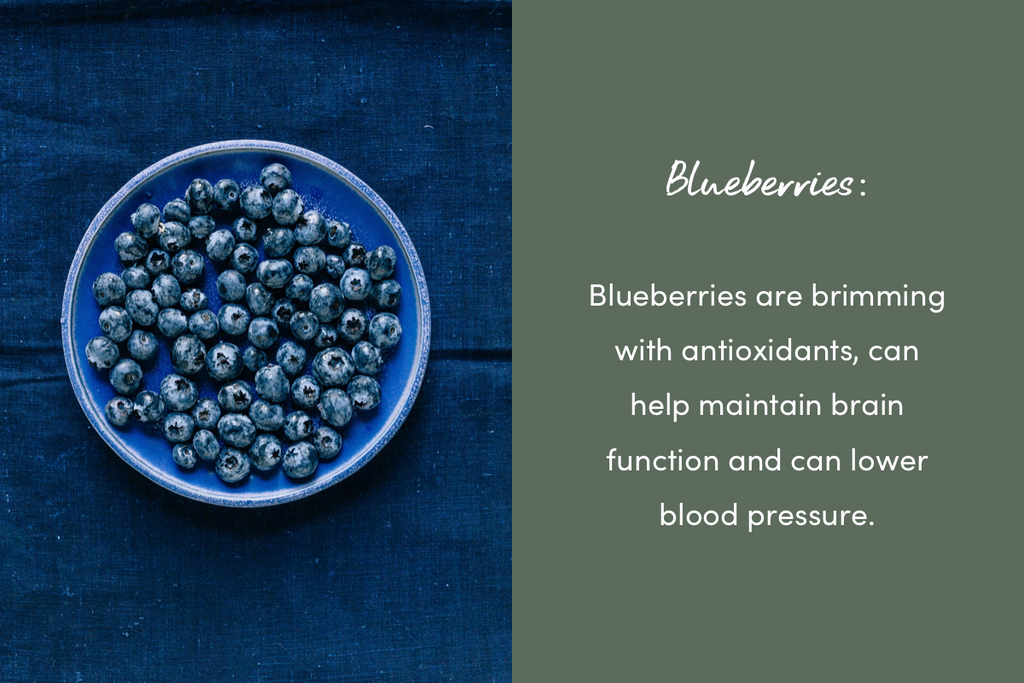
If you know anything about blueberries (apart from the fact they’re sweet and juicy!), you’ll know that they’re brimming with our friends, antioxidants. Studies show that some of these antioxidants are able to cross the blood-brain barrier and carry out protective effects on your brain! Pretty awesome, right?
And that’s just the beginning when it comes to the benefits of blueberries. Whether it’s the fact they can help maintain brain function or that they may lower blood pressure, there’s no denying the magic of these little balls of health. Scatter them across your muesli, pop them in a smoothie or simply snack on them throughout the day.
3. Garlic
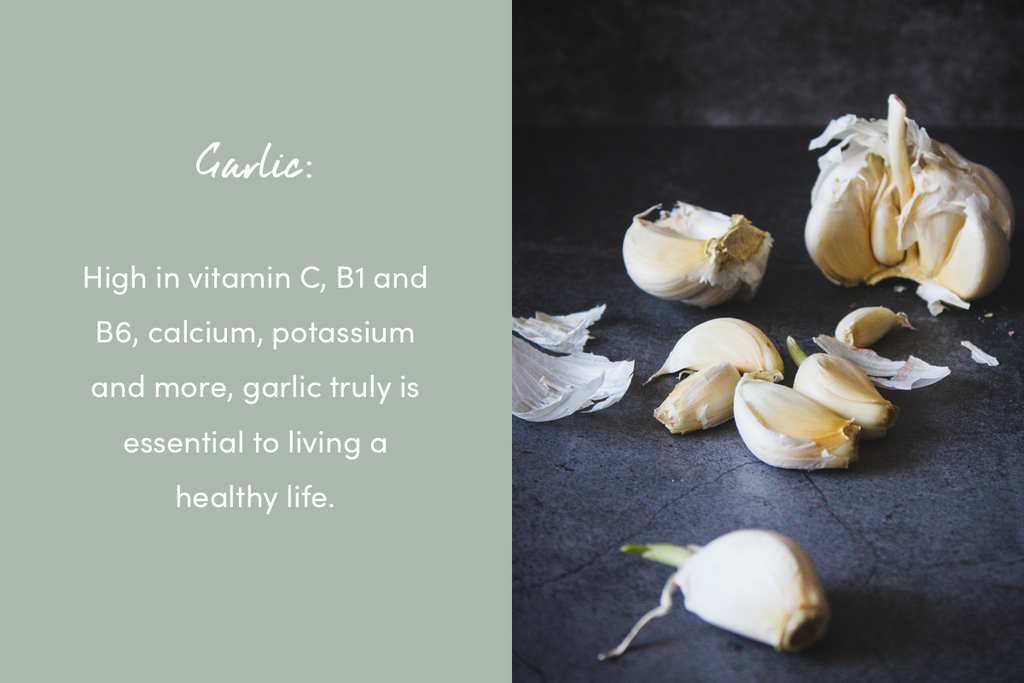
High in vitamin C, B1 and B6, calcium, potassium and more, garlic truly is essential to living a healthy life. Garlic is high in beneficial sulfur compounds such as allicin, which has been found to reduce inflammation and other antioxidant benefits.
Several studies reveal that both allicin and garlic may lower blood pressure and the risk of heart disease in the future. Raw garlic also has powerful antibacterial and antifungal properties, so if you can stomach it, it’s worth chomping on a raw clove or two from time to time! Otherwise, try grating it on your favourite salad or in one of your favourite winter recipes.
4. Seaweed
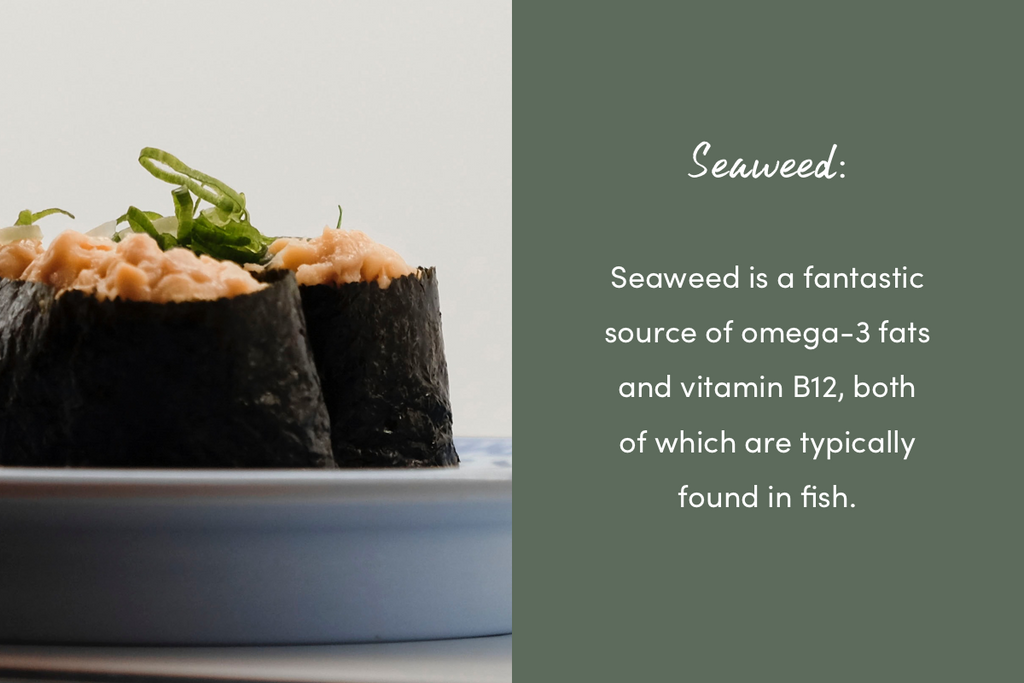
Renowned for its inclusion in Japanese dishes such as sushi, edible seaweed has many surprising health benefits that are supported by science. Some of these are that it’s a great source of vitamins and minerals such as vitamins A, C, E and K, as well as folate, zinc, sodium, calcium and magnesium.
Seaweed is also a fantastic source of omega-3 fats and vitamin B12, both of which are typically found in fish, making them a bit trickier for vegetarians and vegans to get without supplements.
Not a fan of sushi? Try a delicious seaweed salad or a range of other seaweed dishes to get your intake of the nutritional food.
5. Avocados
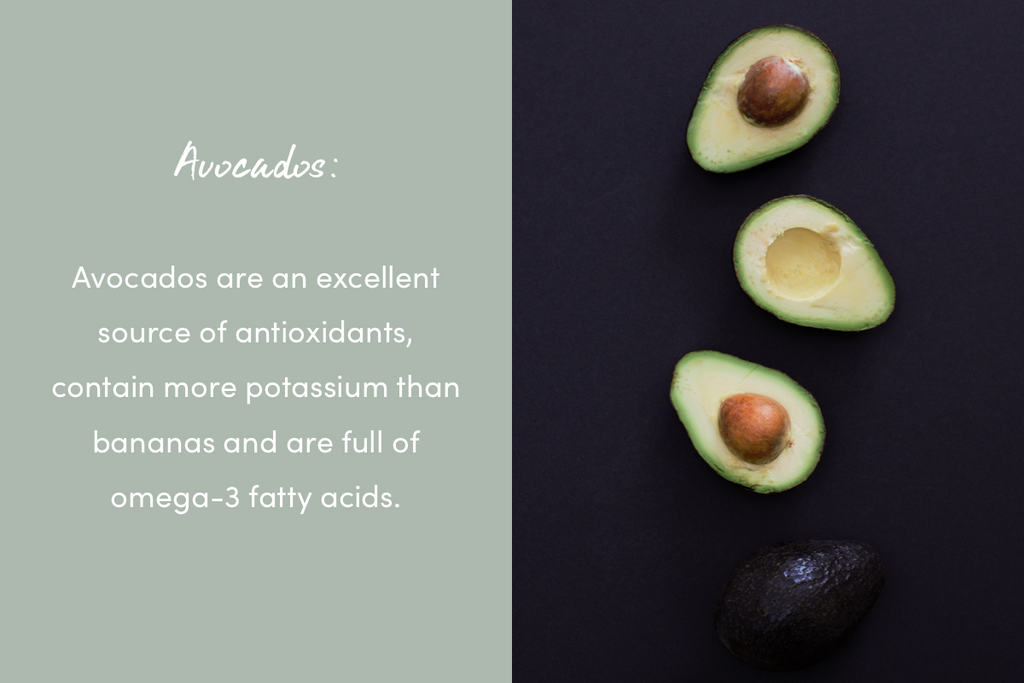
Ahh, avocados. Who doesn’t love to start their weekend with these smashed on sourdough? Avocados are a unique fruit as instead of consisting mainly of carbohydrates, avocado is high in healthy fats. But their benefits don’t end there!
Avocados are an excellent source of antioxidants, contain more potassium than bananas and are full of omega-3 fatty acids.
Aside from being an essential food in a healthy diet, the creamy and buttery flesh of avos is delicious in a range of recipes. From a layered Mexican sweet potato salad to a tandoori pumpkin salad with buttermilk dressing, avocado is an essential ingredient in so many dishes.
6. Almonds
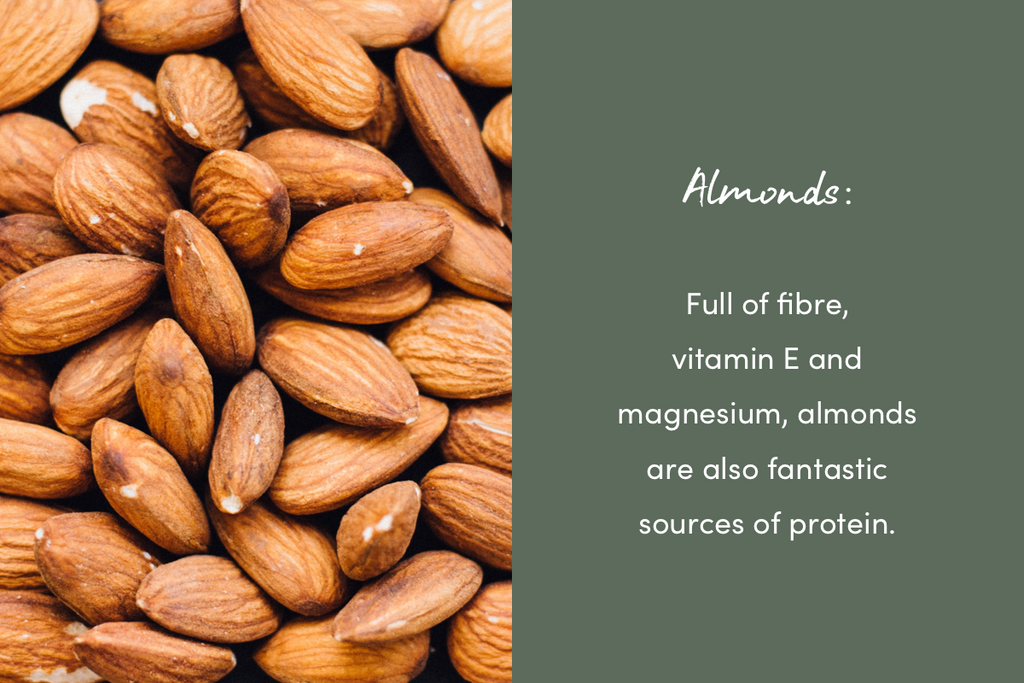
If you want a quick and tasty snack that is nutrient-dense, reach for a handful of almonds. Full of fibre, vitamin E and magnesium, almonds are also fantastic sources of protein. Low in carbohydrates but high in healthy fats, almonds can also assist with the control of blood sugar levels.
Another great benefit of almonds is that they increase the feeling of being full, meaning you end up consuming fewer calories. Bonus!
Almonds are delicious to snack on whether they’re raw, roasted or coated with tamari. Almonds are also a fantastic ingredient to add to salads, whether whole or shaved.
7. Coconuts
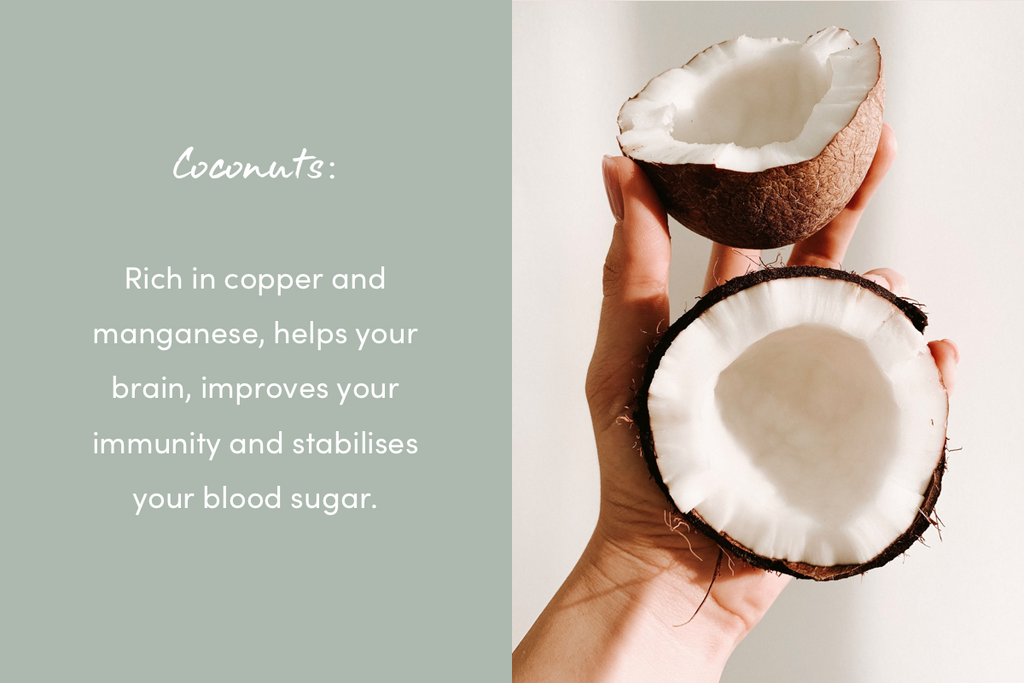
The large, hairy seeds of coconut palms, coconuts are grown in tropical climates and known for their tasty white flesh hiding inside. Rich in many vital minerals such as copper and manganese, coconuts might have several other benefits, such as helping your brain, improving your immunity and stabilising your blood sugar.
Coconuts are an enormously popular substitute for dairy in vegan dishes and drinks, because of their cream and milk. Full fat coconut milk is a great alternative to heavy cream in many recipes as it’s high in fat and creates a rich texture in dishes such as curries, ice cream, puddings, sauces and more. Coconuts really are healthy eating at its finest!
8. Broccoli
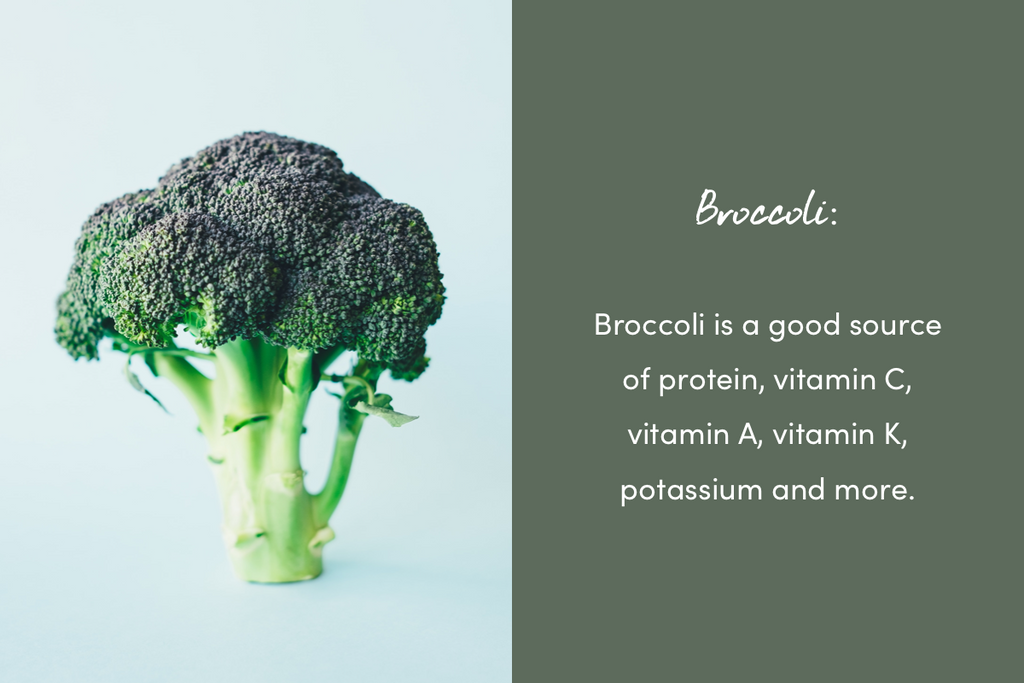
Ahh, broccoli. That good ol’ fashioned green veggie that has been a staple in our diets from day dot. Ok, it might not be as ‘hip’ as kale or silverbeet, but don’t underestimate the health benefits of broccoli. A cruciferous vegetable, broccoli is a good source of protein, vitamin C, vitamin A, vitamin K, potassium and more.
Whether you eat it cooked or raw, broccoli tastes great and makes you feel good. That said, it’s better to keep broccoli as close to its raw form as possible – different cooking methods are known to alter the nutrient composition of the veggie.
9. Bananas
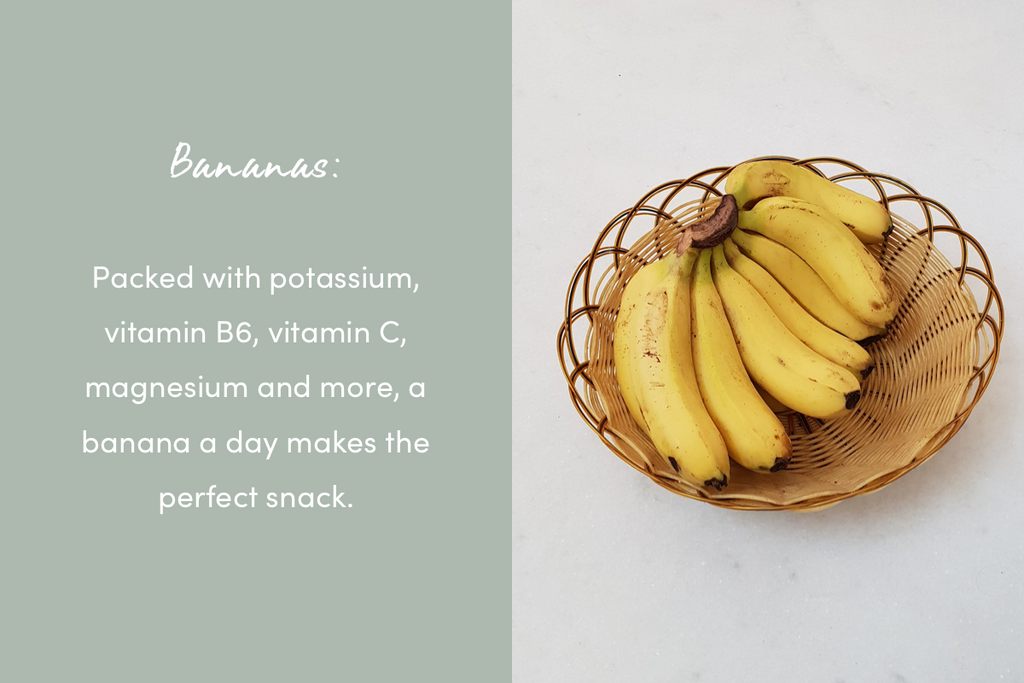
Another dietary staple, bananas are understandably among the world’s most popular fruits. And aside from their sweet and tropical taste, it’s clear to see why bananas are loved around the world. Packed with potassium, vitamin B6, vitamin C, magnesium and more, a banana a day makes the perfect snack.
Much like almonds, bananas are filling so they suppress your appetite – ideal for calorie control and weight loss. They might also support heart health due to their high potassium and magnesium levels.
As we all know, bananas are delicious to be eaten straight from the skin. That said, they’re also great in smoothies, chopped onto porridge and muesli and also used in sweet dishes such as banana bread and banoffee pie. Check out these mouth-watering banana recipes.
10. Oily fish
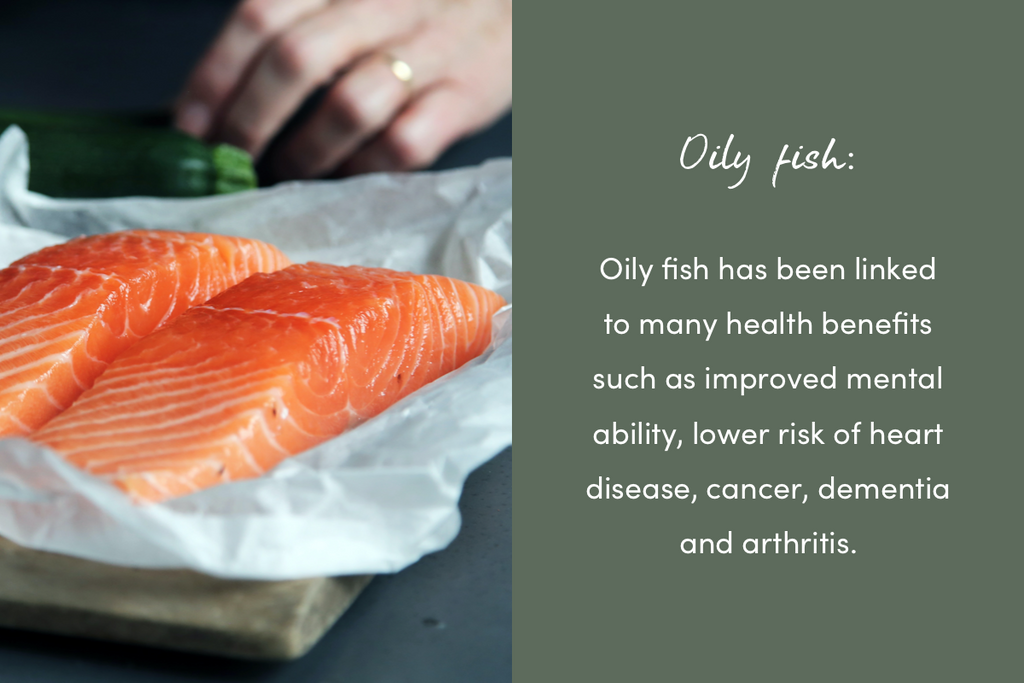
Oily fish has been linked to many health benefits such as improved mental ability, lower risk of heart disease, cancer, dementia and arthritis. This is because fish oil is rich in healthy fatty acids. There is a range of oily fish that can be enjoyed as part of a balanced diet, including salmon, trout, sardines, kippers, tuna, mackerel and more.
There is a range of oily fish recipes to try out, from sardine escabeche to confit trout salad. However you decide to eat them, you can be sure that upping your oily fish intake will do wonders to your overall health.
11. Apple cider vinegar
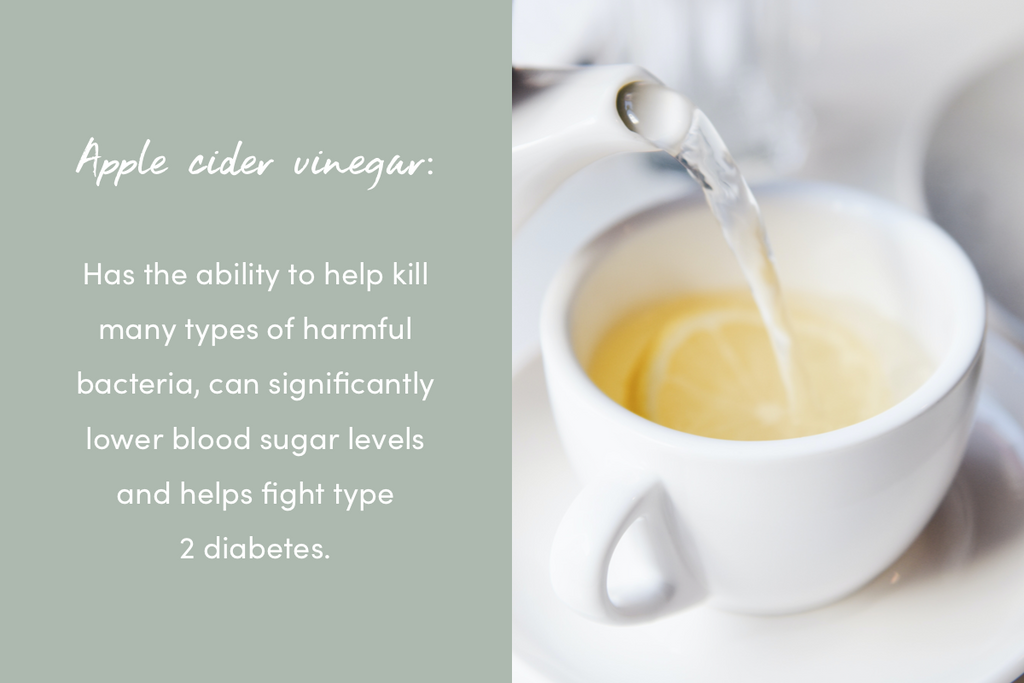
There are several proven benefits of apple cider vinegar. With the ability to help kill many types of harmful bacteria, apple cider vinegar also significantly lowers blood sugar levels making it ideal for fighting type 2 diabetes.
Studies have suggested that consuming apple cider vinegar may help protect you against cancer. These studies have also shown that different types of vinegar can kill cancer cells and shrink tumours (although all these tests have been done in test tubes or on rats, not humans).
But how do you consume apple cider vinegar? Well, obviously you can douse your salads with the stuff. But it’s also been said that drinking four teaspoons (20 ml) of apple cider vinegar in water right before a high-carb meal can reduce blood sugar spikes.
The taste might take a bit of getting used to, but once you have – apple cider vinegar is definitely worth integrating into your diet!
12. Quinoa
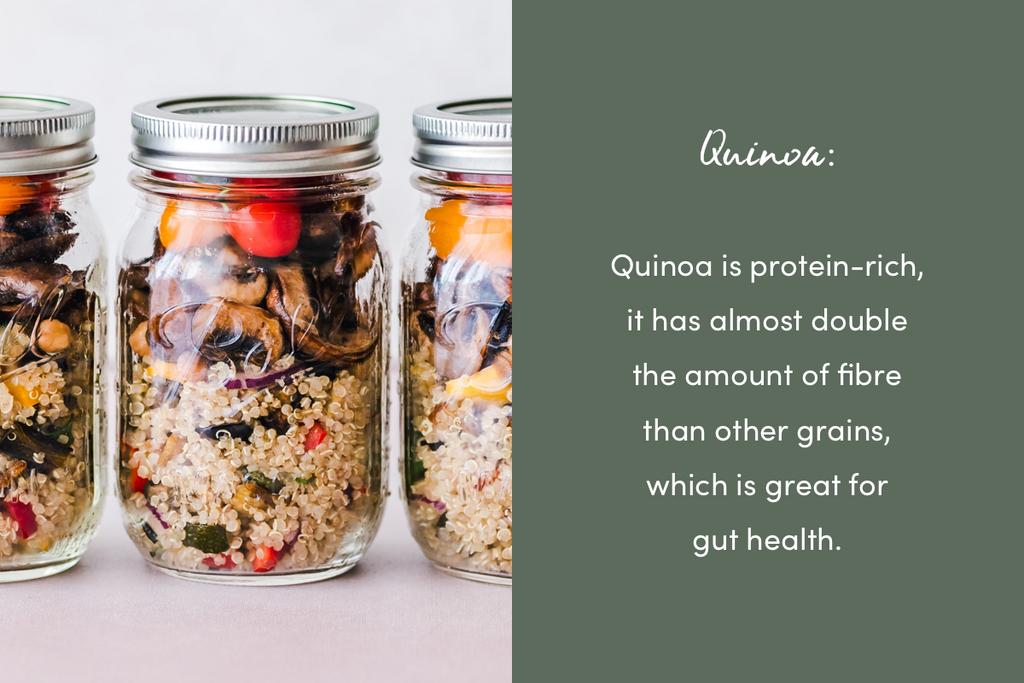
Quinoa might have been around three to four thousand years when the Incas first realised the seed was fit for human consumption, but today it’s more popular than ever. And rightfully so. Quinoa is one of the most protein-rich foods we can eat, plus, it has almost double the amount of fibre than other grains, which is great for gut health.
Also rich in magnesium and iron, quinoa truly is a nutritional grain that can be used as a base for many dishes. Whether it’s in a kale salad or enchilada casserole, quinoa really is the grain that keeps on giving. Check out these delicious quinoa recipes.
13. Oats
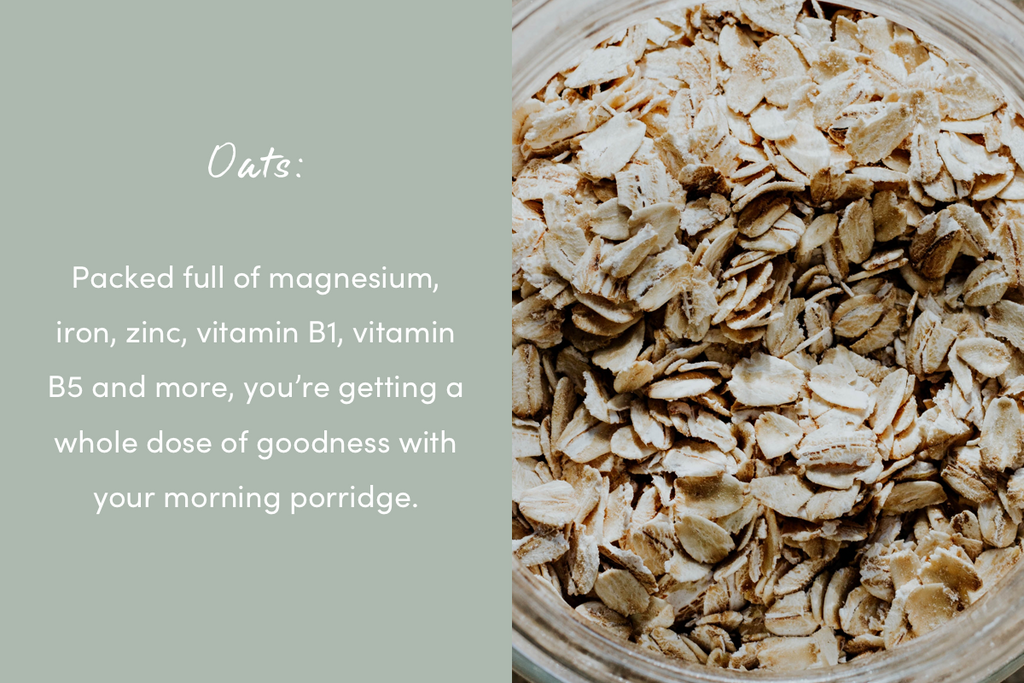
A trusty brekkie staple, oats are a gluten-free whole grain and a fantastic source of vital vitamins, fibre, antioxidants and minerals. Packed full of magnesium, iron, zinc, vitamin B1, vitamin B5 and more, you’re getting a whole dose of goodness with your morning porridge.
Rich in a unique group of antioxidants called avenanthramides that have anti-inflammatory and anti-itching effects, oats have even been known to help soothe skin conditions such as eczema.
From throwing them into your morning smoothie to making your own bircher muesli or porridge, oats are a fantastic food to eat to start your day as they release energy slowly. Perfect for combatting those mid-morning hunger pangs!
14. Lentils
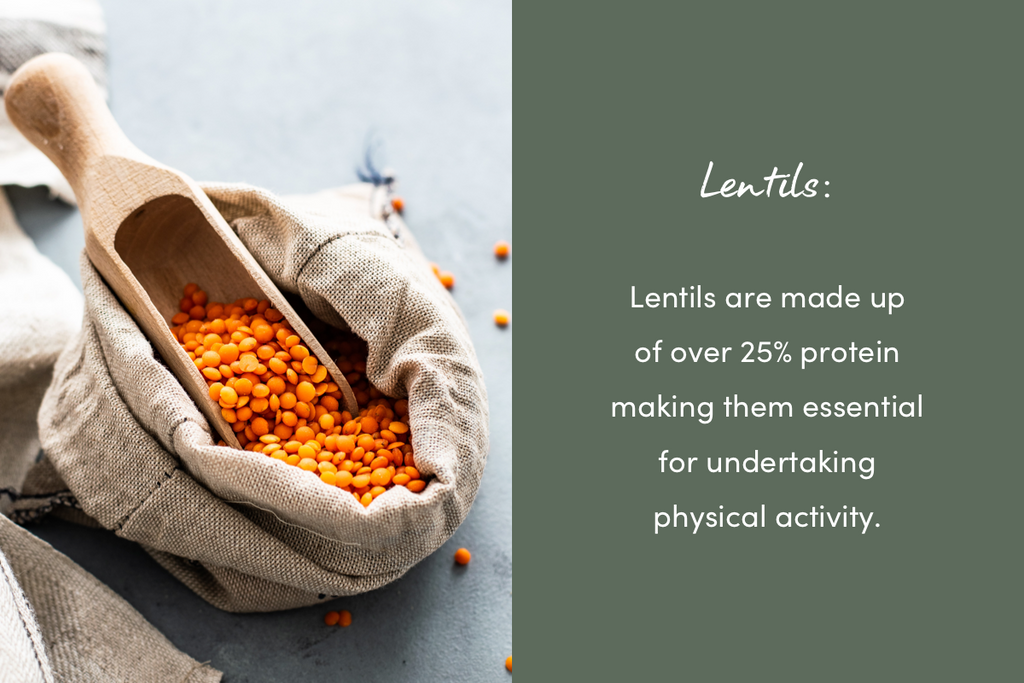
A highly-nutritional edible seed (although these little guys are also known as ‘pulses’), lentils are made up of over 25% protein, making them an excellent meat substitute. They’re also filled with protein and iron, making them essential for undertaking physical activity.
Lentils can be added to a range of tasty dishes such as salads, vegetarian lasagne and more. Take a look at these lentil recipes for some inspiration.
15. Carrots
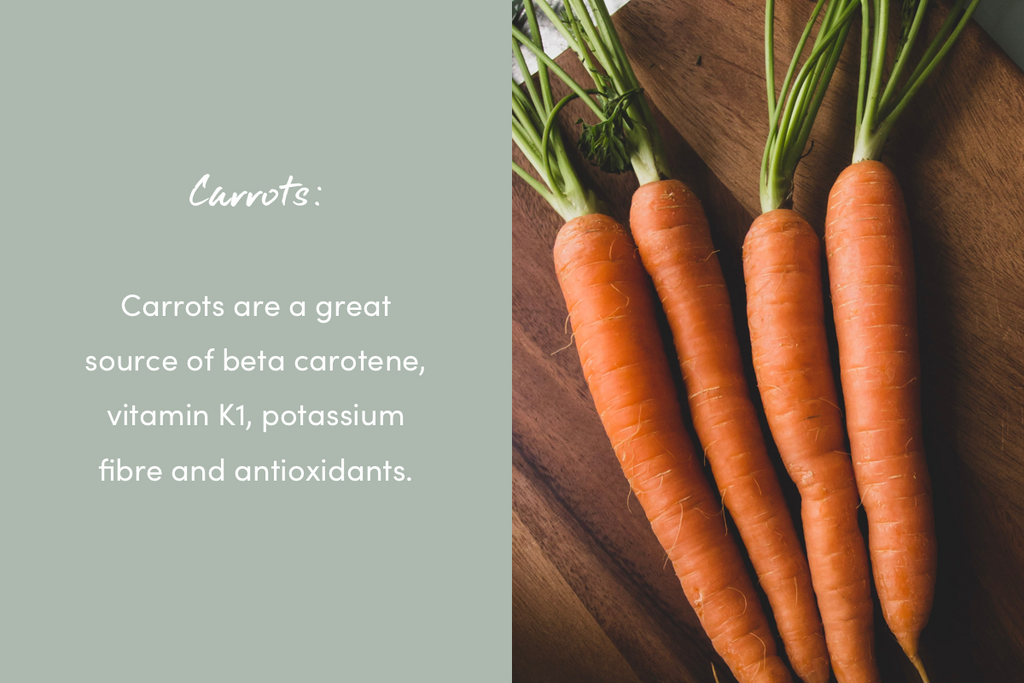
Last but not least, carrots are an essential veggie to have in your diet. Although made up of at least 88% water, they also manage to be made up of several nutrients that are great for your health. Carrots are a great source of beta carotene, vitamin K1, potassium fibre and antioxidants.
Whether you’re dipping raw carrots into hummus for a tasty, crunchy snack, or adding them to your favourite salad recipe, don’t overlook this classic vegetable and all of its goodness.
You may also like

Lifestyle
What To Gift a Newborn Baby
We’re a big fan of gifts that are both functional and comfy. Our brand was built with practicality, ease, function and comfort in mind. It was a collective passion, drive and demand for a simpler wardrobe made from sustainable fabrics that supported the everyday lifestyle that drives our brand identity. So when it comes to gifts for a newborn - what better gift than something that is good for them and the planet. A baby’s first wardrobe starts here. Boody Baby is an adorable collection of practical, Australian made baby clothing essentials created from organic bamboo. Perfect for play and sleep, the stretchy fit of our bamboo baby wear clothes is super soft on your bub’s delicate skin. Discover warm baby beanies, booties, baby blankets, bodysuits and more. All designed with zero waste and with your baby and the planet in mind. Natural fabrics - like certified organically grown bamboo are best for a newborn’s delicate skin, as they are breathable, soft and thermoregulating. If we think about baby clothes , including singlets, bodysuits and mittens - choosing natural fibres is the gentlest choice and the most functional gift of them all. To make gift-giving for newborns easier, we have compiled a list of what to buy. Okay, what size do I choose? On average, babies are born between 3-4kg, which generally means a size 0000. You can choose something for them to wear now (newborn) or something for them to grow into. See our size guide for help. Baby Sleeveless Bodysuit Introducing the Baby Sleeveless Bodysuit, gentle on their delicate skin and kind to the planet. Created for warmer days and nights, the Baby Sleeveless Bodysuit is designed with no sleeves and features snap buttons at the crotch for easy dressing and undressing. Finished with our signature trim and overlocked hem, our naturally breathable baby bodysuit is easy to wear and wash. This bodysuit is a staple in our collection of organic baby clothes. - Snap buttons at crotch for easy dressing and undressing - Signature trim - Round neckline Baby Long Sleeve Top Introducing the Baby Long Sleeve Top, gentle on their delicate skin and kind to the planet. Our Baby Long Sleeve Top will keep your little one protected and comfortable while busy playing and exploring. Featuring a Round neckline, snap buttons on the shoulder for easy dressing and undressing and overlocked hems, our Baby Long Sleeve Top is easy to wear and wash. Mix and match this baby top with our assorted bottoms including our Baby Pull-On Pants and Baby Pull-On Shorts. - Round neckline - Snap buttons on the shoulder for easy dressing and undressing - Overlocked hems Baby Pull-on Pants Introducing the Baby Pull-on Pants, gentle on their delicate skin and kind to the planet. Our Baby Pull-on Pants make getting dressed in the mornings easier with an elasticised, wide waistband for comfort and drawstrings at the waist. Our Baby Pull-on Pants pull on with ease and are designed to accommodate bulky nappies. Mix and match these baby pants with our assorted tops including our Baby Long Sleeve Top and our Baby T-Shirt. - Elasticised, wide waistband for comfort - Drawstrings at waist - Designed to accommodate bulky nappies Baby Socks - 3 Pack Introducing our Baby Socks, gentle on their delicate skin and kind to the planet. Our Baby Socks are perfect for every day. Breathable and soft, they feature an elasticised ribbed top for comfort all day long. With a non-slip sole, our bamboo socks for babies are crafted with a little stretch for the perfect fit. Discover our Baby Socks - 3 packs, including 2 plain pairs, 1 striped pair. - Each pack contains three pairs of socks: 2 plain pairs, 1 striped pair - Soft, elasticised ribbed top for comfort all day long - Non-slip sole for safety Stretch Jersey Wrap for Babies Introducing our Stretch Jersey Wrap for Babies, gentle on their delicate skin and kind to the planet. Our Stretch Jersey Wrap for Babies is super soft and super stretchy for easy swaddling. Simply double it over, wrap, pull firm and tuck the ends in well to keep your little one comfortable. Our bamboo baby wrap is the most gentle touch on a little one's sensitive skin - Size: 100cm x 100cm / 39" x 39" in - Contrast edging all around - Super stretchy fabric for easy swaddling Mindful Gifting Our bamboo, Australian made baby clothes and accessories are packaged in a 100% recyclable paper box printed with vegetable-based inks. For the ultimate packaging - wrapped in a cloth following the furoshiki technique. Discover our Baby bamboo clothes collection today. Looking to see our collection worn on very adorable little ones? Follow @boodybabyau

Lifestyle
The Ultimate Beginner's Guide to Zero-Waste Living
So, you have heard the term zero-waste and you’re interested to learn more. A zero-waste lifestyle is about being mindful and considered in your everyday actions. A zero-waste lifestyle is a journey and the notion of avoiding, reducing and eliminating waste from your home and habits will not happen in an instant. The idea of waste-free living is about making considered decisions that are simple everyday swaps. While this lifestyle has a real, community-wide impact, it simply starts with you and your everyday actions.

Lifestyle
Boody x Charlie Evans
Last week, in celebration of our New Nude collection, we hosted a 'nude' art class with @_artbycharlie. Charlie led the class, discussing abstract figurative techniques and started with a drawing exercise, focusing on the lines of the body, shapes, movement, negative and positive space, placing and composition. Our models were in the nude - Boody nudes. They each showcased the new colours and were the drawing focus of the class. Depending on your skin tone, everyone's version of nude is different. We believe that every line, fold, curve, shape, and colour that makes you you is something to celebrate. Our class was inspired by nude being a state of being, not a colour. Discover our collaboration below with images of the day. Shop nudes.































